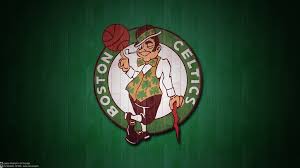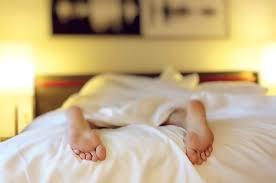The business of sleep continues to break new ground. To what end, that's hard to say.
And it's a good thing the Boston Celtics learned about the latest sleep-enhancing technology just before they jet off to London later this week. Cause who knows how they would have fared without it.
While the team adopts hi-tech sheets, pillows and other products and tells its fans that the move is the latest player conditioning advance to snare that all-important micro-edge over other NBA teams, from this perspective it sure feels more like a souped-up product sponsorship partnership that's got more to do with $$$ and less to do with ZZZ.
Delivering players in Celtic green workout attire, the first-place team recently participated in a joint-media event to promote its new association with Bedgear Performance, newly-minted as the team’s "Official Performance Sleep System Partner." That's much the same as Budweiser is designated a team's "official beer," or Gillette as another's "official shaving apparatus," or words to that effect (provided that the sponsor's price is right).
Bedgear makes, what it believes are, superior sleep and bed products with fabrics that "breathe" better and mattresses that deliver better support with greater precision. These advances purportedly allow one to experience greater air-flow in order to sleep cooler, and more comfortably. They're not cheap (but somehow you already knew that).
 “The Celtics are always looking for a competitive advantage," said Rich Gotham, Boston Celtics president, in a statement, "and our partnership with Bedgear will help improve player performance through improved, sleep, rest and recovery.”
“The Celtics are always looking for a competitive advantage," said Rich Gotham, Boston Celtics president, in a statement, "and our partnership with Bedgear will help improve player performance through improved, sleep, rest and recovery.”
At least one other NBA team, the Dallas Mavericks, has a partnership with Bedgear, as do the Boston Red Sox, who signed on last year. You might think the Celtics were the worst team in the league, looking for something – anything – to get them on track. But no. Of 30 teams they have the 2nd best record in the NBA, which includes having won 75 percent of games (15-5) on the road. So it seems like no one's losing sleep, even in flimsy hotels like the Ritz Carlton.
With cameras rolling, smiling players oooh-ed and aahh-ed as they curled up on mattresses, out in the open on the showroom floor, almost as if they were previously coached as to how to react. Are the beds that much better than what they're already sleeping on? It's hard to say. But what's easy to say that this is, plain and simple, a PR event that requires nothing less than a ringing endorsement from the players.
As for why NBA players like the Celtics will benefit from this bed gear, the company says it's because it caters to their physical excesses.
"They have such extreme body types, and when you have bigger shoulders, or a particular sleep habit, weight in your hips that might pull you forward," says Shana Rocheleau, Bedgear's VP for Strategy. "You might be pulled out of your spinal alignment at night if you don't have the right pillow and the right mattress to build 100 percent of your support."
OK, we all understand that technological improvements come in various packages, so why not in a pillow or a mattress? But how much of an advance can there be – a half of a percent difference, one percent? – especially for players that are already at the peak of their profession and the physical prime of their lives? The sales pitch seems hollow, but of course, all of this publicity is really directed at the Celtics' fan base, which is encouraged to do what their heroes do.
The baseline mattress, the M1 Performance, sells for $599, and "adapts your body temperature to your room environment," according to the description on the website. "The cover of our mattress helps ventilate the core and dissipate heat and moisture from your body, so you sleep more comfortably." But that's just the basic model.
Then, at $849, there is the M1 X, whose "layered construction alleviates the 'sink' created by all memory foam beds," and contains "over 950 contouring Micro-Curl® support coils, each individually pocketed to adapt to the shape of your body, [which] creates personalized support and reduces pressure points throughout the night."
As for pillows, they are available at up to $199 apiece. And there's a range of other pricey products that include toppers, blankets and the Performance Neck Pillow, whose "design includes an adjustable strap for a secure fit to each individual’s head, neck, and shoulders, as well vertical extensions that cover and contours to the ears, providing noise-reduction." The players will debut this work of engineering on the team's long(!) flight to the UK for Thursday's game.
Millionaire NBA players (or their billion-dollar teams) can afford these things. But of course that's not the point. The question is whether they're worth the money to the average Joe and Jane Hoopster. But that answer is harder to come by, something as likely found as sinking a half-court shot with your eyes closed.




